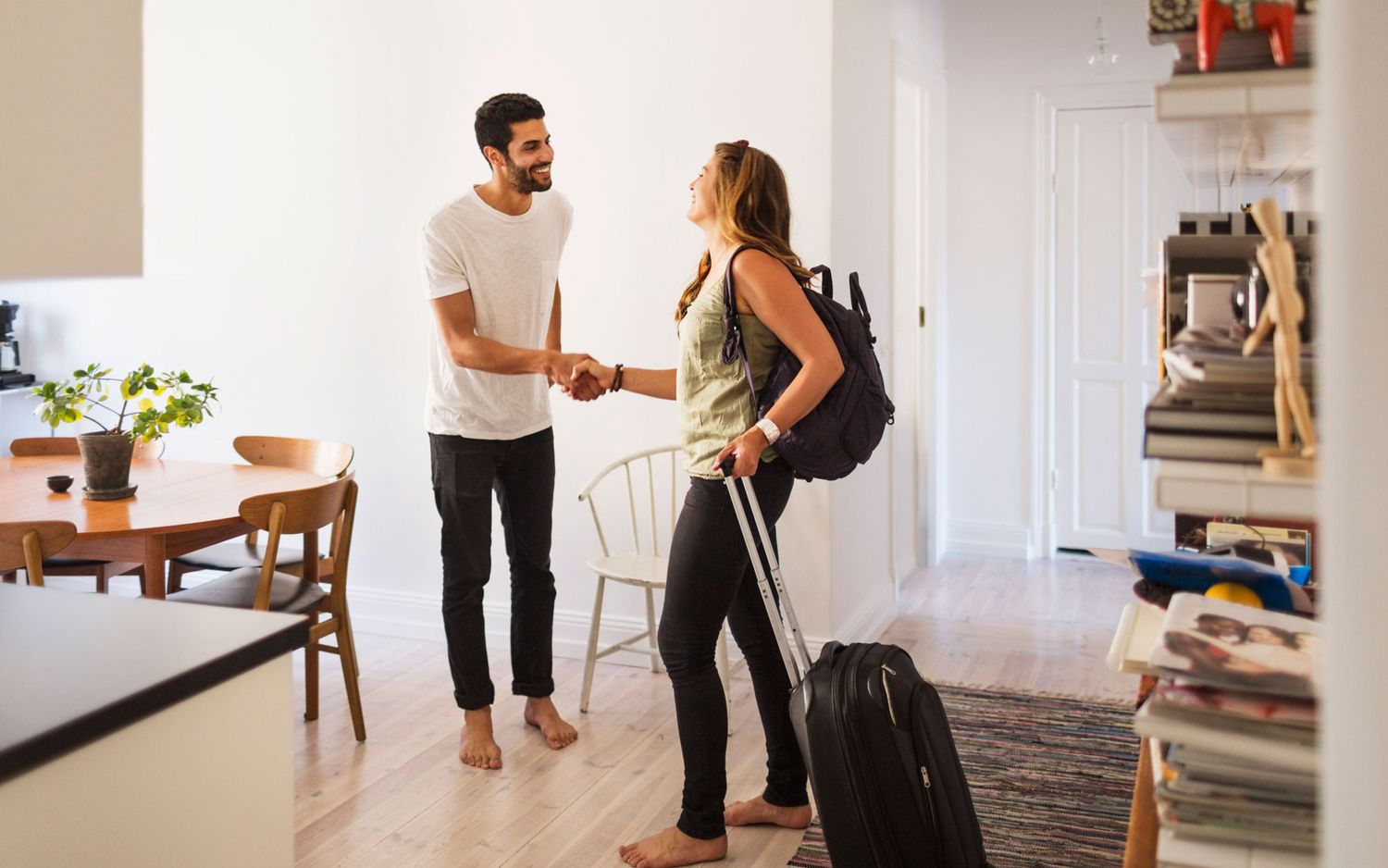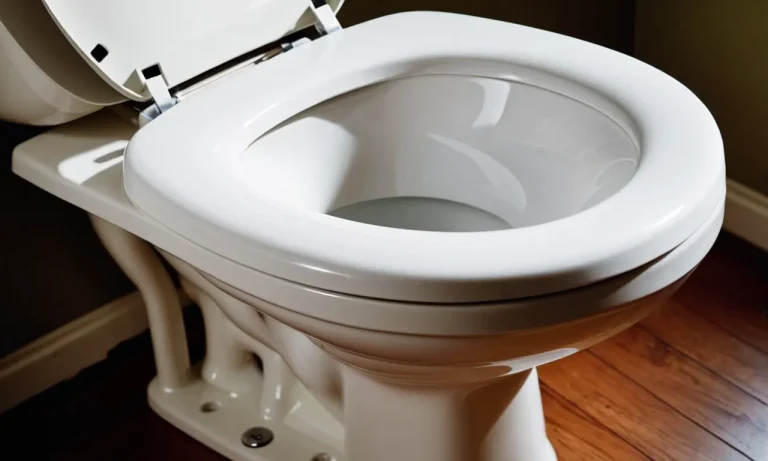Finding bed bugs in an Airbnb rental can be any traveler’s nightmare. If you’re wondering what Airbnb’s policy is for dealing with these pesky pests, you’ve come to the right place.
If you’re short on time, here’s a quick answer to your question: Airbnb holds hosts responsible for keeping their listings free of bed bugs. Guests who report bed bug infestations are eligible for a full refund or credit for rebooking, or they can even sue the hosts.
In this comprehensive guide, we’ll cover everything there is to know about Airbnb’s bed bug policy.
You’ll learn key facts about bed bugs, how to detect them, steps for reporting infestations, whether hosts or guests are responsible, the refund/rebooking policy, and tips for preventing bed bugs in Airbnb rentals.
What Exactly Are Bed Bugs?
Bed bugs are small, parasitic insects that feed on the blood of humans and animals. They are flat and oval-shaped, ranging in size from a pinhead to about 5mm in length.
These pests are typically reddish-brown in color, but can appear darker or lighter depending on when they last fed. They do not have wings, but are capable of crawling and moving quickly across various surfaces.
Basic facts and characteristics
Bed bugs are resilient pests that can survive in a wide range of environments. They are mainly active during the night and prefer to hide in cracks and crevices near their host’s sleeping area, such as in mattresses, bed frames, and furniture.
Contrary to popular belief, bed bugs are not attracted to dirt or filth. They can be found in both clean and dirty environments.
These insects reproduce rapidly, with adult females laying up to 500 eggs over their lifetime. Bed bugs can go for several months without feeding, making it difficult to eliminate them completely.
Their bites are usually painless, but can result in itchy red welts or allergic reactions in some individuals.
Common signs of an infestation
Identifying a bed bug infestation can be challenging, as these pests are skilled at hiding. However, there are several signs that may indicate their presence:
- Bite marks: Waking up with clusters of red, itchy bites on exposed skin is a common indication of bed bug activity.
- Stains on bedding: Bed bugs leave behind dark, rust-colored stains on sheets, pillowcases, or mattresses from their droppings or crushed bodies.
- Musty odor: A strong, unpleasant odor resembling the scent of rotten raspberries or coriander can be emitted by severe bed bug infestations.
- Visible bugs or eggs: In some cases, bed bugs or their eggs may be spotted in the corners of mattresses, furniture joints, or other hiding places.
Who’s Responsible for Bed Bugs in an Airbnb?
When it comes to bed bugs in an Airbnb, determining responsibility can be a tricky task. Both hosts and guests have certain expectations and obligations to ensure a comfortable and pest-free stay.
Let’s take a closer look at Airbnb’s official policy and what it requires of hosts and guests.
Airbnb’s official policy
Airbnb takes the issue of bed bugs seriously and has a clear policy in place to address this problem. According to their guidelines, hosts are expected to provide a clean and safe environment for their guests.
This includes ensuring that their listing is free from bed bugs and other pests.
If a guest encounters bed bugs during their stay, Airbnb encourages them to contact their host immediately.
The host is then responsible for taking appropriate measures to address the issue promptly. This may involve arranging professional pest control services and ensuring that the infestation is properly dealt with.
What Airbnb requires of hosts
Airbnb holds hosts accountable for maintaining a bed bug-free environment. Hosts are expected to regularly inspect their property and take preventive measures to minimize the risk of infestations.
This can include regularly washing bedding and linens, vacuuming mattresses, and conducting thorough cleaning between guest stays.
Should a bed bug infestation occur, hosts are expected to act quickly to resolve the issue. This may involve temporarily closing the listing until the problem is completely eradicated.
Airbnb may also require hosts to provide proof of professional pest control treatment before allowing them to continue hosting.
Expectations for guests
While hosts have a responsibility to maintain a clean and pest-free environment, guests also have a role to play in preventing the spread of bed bugs.
Guests should also take precautions to prevent bringing bed bugs into the property.
This includes inspecting their luggage and personal belongings before entering the accommodation, avoiding placing their bags on beds or upholstered furniture, and being vigilant for signs of bed bugs during their stay.
By working together, both hosts and guests can help ensure a bed bug-free experience on Airbnb.
Airbnb’s Refund and Rebooking Policy for Bed Bugs
Full refund or credit eligibility
When it comes to bed bugs, Airbnb takes the issue very seriously and has implemented a comprehensive refund and rebooking policy to protect both hosts and guests.
If a guest encounters bed bugs during their stay, they may be eligible for a full refund or credit for future bookings.
According to Airbnb’s policy, guests who discover bed bugs in their accommodations should document the evidence and contact the host immediately. It is important to take clear photos or videos of the infestation to provide proof.
Guests should also reach out to Airbnb’s customer support within 24 hours of check-in to report the issue.
Once Airbnb is notified, they will initiate an investigation and work with both the guest and the host to resolve the situation.
If it is determined that the presence of bed bugs is confirmed, the guest may be eligible for a refund or credit.
The claims process
When filing a claim for a bed bug infestation, Airbnb requires guests to provide evidence such as photos, videos, or other documentation that clearly shows the presence of bed bugs.
It is essential to provide detailed information about the infestation, including the date and time of discovery.
After submitting the necessary evidence, Airbnb’s support team will review the claim and make a decision. The process typically takes a few business days, but in some cases, it may take longer depending on the complexity of the situation.
If the claim is approved, Airbnb will issue a refund or credit to the guest according to their policy. It is important to note that the refund amount may vary depending on the circumstances and the length of the stay.
Coverage limits and exclusions
While Airbnb strives to provide a fair resolution for bed bug incidents, it is important to understand the coverage limits and exclusions of their policy.
Airbnb’s refund and rebooking policy for bed bugs only applies if the infestation is confirmed and reported within 24 hours of check-in.
Additionally, Airbnb’s policy does not cover situations where guests bring bed bugs with them or if the infestation occurs after the initial 24-hour period. It is crucial for both hosts and guests to maintain cleanliness and take precautions to prevent bed bug infestations.
If you encounter bed bugs during your Airbnb stay, it is essential to report the issue promptly and provide the necessary evidence.
By following Airbnb’s guidelines and cooperating with their support team, you can ensure a fair resolution to the situation.

Preventing Bed Bugs in Airbnb Rentals
Bed bugs can be a nuisance for both Airbnb hosts and guests. These tiny insects are notorious for hitchhiking on luggage, clothing, and other belongings, making it easy for them to infest rental properties.
However, by taking some preventive measures, hosts and guests can minimize the risk of encountering bed bugs during their stay.
Steps hosts can take:
1. Regularly inspect the property: Hosts should conduct routine inspections of their Airbnb rental to identify any signs of bed bugs.
Look for small blood stains, dark spots (fecal matter), or even live bed bugs in the seams of mattresses, cracks in furniture, or behind headboards.
2. Seal cracks and crevices: Bed bugs can hide in tiny cracks and crevices, so it’s important to seal them off. Use caulk or sealant to close any gaps in furniture, walls, or baseboards to prevent the bugs from entering or escaping.
3. Use mattress and pillow covers: Encasing mattresses and pillows with bed bug-proof covers can help protect against infestations.
These covers prevent bed bugs from accessing the mattress or pillow and make it easier to detect any signs of an infestation.
4. Clean and vacuum regularly: Regular cleaning and vacuuming can help eliminate any potential hiding spots for bed bugs. Pay close attention to cracks, crevices, and upholstery, as these are common hiding places for these pests.
What guests can do:
1. Inspect the room upon arrival: When guests arrive at their Airbnb rental, it’s a good idea to conduct a thorough inspection of the room.
Check the mattress, headboard, and any upholstered furniture for signs of bed bugs. Also, keep an eye out for any dark spots or blood stains on the bedding.
2. Keep luggage elevated: Bed bugs tend to gravitate towards dark, secluded areas, such as the corners of a room or the underside of furniture.
To minimize the risk of bed bugs crawling into luggage, guests should keep their bags elevated on luggage racks or countertops instead of placing them on the floor or bed.
3. Wash and dry clothing on high heat: After returning home from an Airbnb rental, guests should immediately wash and dry their clothing on high heat.
This can help kill any bed bugs that may have hitched a ride on their clothes.
Signs to look for when booking:
When booking an Airbnb rental, guests should keep an eye out for reviews that mention bed bugs. While it’s not common, some properties may have had previous issues with these pests.
Additionally, guests can also check the bed bug registry website or local health department websites for any reported infestations in the area.
Remember, prevention is key when it comes to bed bugs. By following these steps, hosts and guests can minimize the risk of encountering these unwanted visitors during their Airbnb stay.
How to Report Bed Bugs to Airbnb
Contacting Airbnb support
If you discover bed bugs in an Airbnb listing, it is crucial to report it immediately to Airbnb support. They have a dedicated team to handle such situations and can provide you with the necessary guidance and assistance.
To contact Airbnb support, you can reach out to them through their website or mobile app. Simply navigate to the help center and select the appropriate category for reporting a problem.
Airbnb’s customer support is available 24/7, so don’t hesitate to get in touch with them.
Providing documentation
When reporting bed bugs to Airbnb, it is essential to provide as much documentation as possible. Take clear and detailed photographs or videos of the bed bugs and any evidence of their presence, such as eggs, excrement, or bites.
Additionally, keep any communication with the host regarding the issue, as it may serve as valuable evidence.
Providing thorough documentation will help Airbnb assess the situation accurately and take appropriate action.
The investigation process
Once you report bed bugs to Airbnb and provide the necessary documentation, they will initiate an investigation.
This process involves gathering information from both the guest and the host to determine the extent of the problem and the responsibility for the infestation.
Airbnb may request additional documentation or evidence from you to support your claim. They take bed bug reports seriously and aim to resolve the issue in a fair and efficient manner.
Note: It is important to remember that bed bug infestations can happen even in the cleanest of environments, as they can be brought in unknowingly. Airbnb understands this and has specific policies in place to protect both hosts and guests.
By promptly reporting bed bugs, you are helping Airbnb maintain the safety and quality of their listings.
Conclusion
Hopefully this guide has helped shed some light on how Airbnb handles the sensitive issue of bed bugs.
By outlining the responsibilities of hosts and guests, the refund policy, prevention tips, and the reporting process, travelers can feel fully prepared to book Airbnbs with greater peace of mind.
The bottom line is that Airbnb places the onus on hosts to provide pest-free accommodations. If you encounter bed bugs, document everything, contact Airbnb as soon as possible, and know you are entitled to a full refund or credit.
With vigilance and proactive prevention habits, we can work together to avoid bringing bed bugs home from our Airbnb stays.






